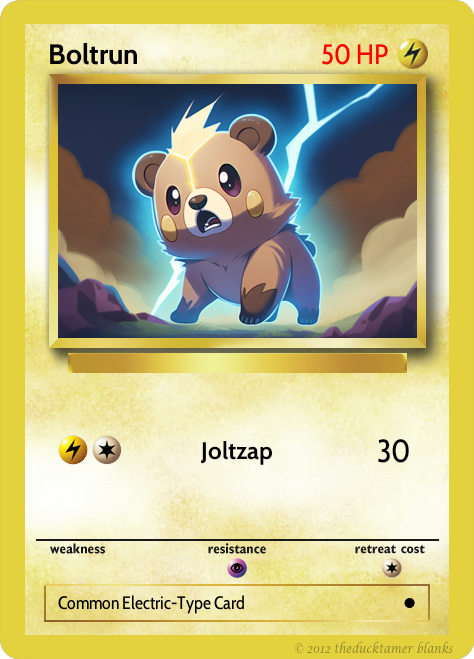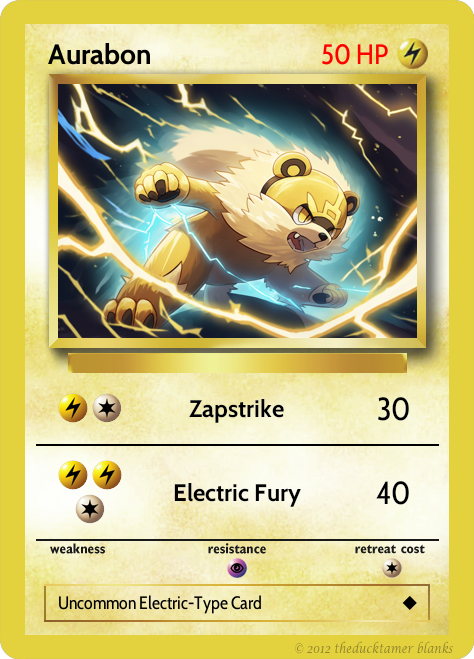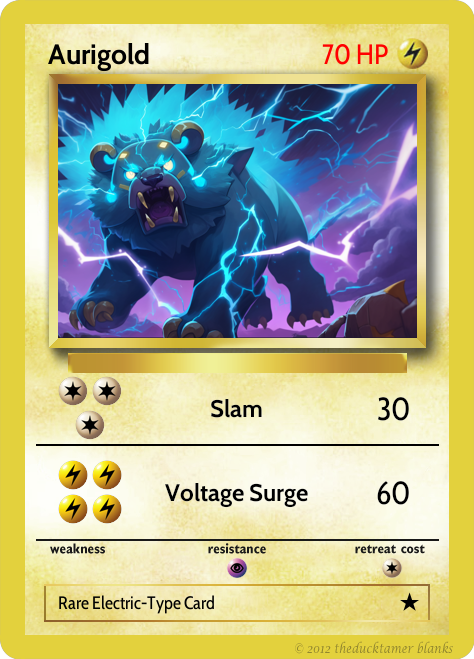Remaking the Pokémon Trading Card Game with AI
Pokémon still tops the list of highest grossing media franchises, with a total $77B in lifetime revenue. The Pokémon community is clearly passionate about not letting this brand die, as Pokémon Go still has 8 million daily (80 million monthly) active users some 7 years after its heyday.
For that reason, we shouldn’t be surprised that there’s been so much enthusiasm to apply Generative AI to Pokémon. One of the very first entries in my WTF journal mentioned Fakemon, the AI that will generate fake Pokémon for you. Since then, I’ve counted nearly a dozen similar instances of fine-tuning ChatGPT including one from Lambda Labs that lets you meld a Pokémon with any cultural figure. But now this has been taken one step further.
WTF? Generating Pokémon Cards
A Github user named Pixegami created a Python script that uses AI to generate new and complete Pokémon trading cards. It picks from 6 elements and a type of creature, and randomly generates 1-2 abilities. It then uses OpenAI to generate a Pokemon name, a description, and then creates a custom prompt based on these details for Midjourney. Finally, a separate command can be used to combine the Pokemon data with the generated artwork to create a to-specification Pokémon card. These were my three favorite:



First, these are very passable for Pokémon. Not just the images, but the names, the abilities, and the look of the cards. Second, I’m amazed that the Python script has helped the AI understand that Pokémon can evolve into new forms – and that these evolutions result in related-looking Pokémon with related, but stronger, abilities.
For the non-technical people, This Pokémon Does Not Exist offers a similar (although not as robust) experience. Otherwise, you can get Pixegami’s code on Github to build this AI Pokémon Card Generator.
I'm not huge into trading card games, so I'm not entirely sure how this changes things for the Pokémon ecosystem. I know that there’s a lot of developers in this interest, as there’s even an unofficial Pokémon API for developers. However, a couple of things stand out to me from a broad perspective.
Character development just got a whole lot easier. Pixegami shows us how you can set a few parameters, identify a large dataset for inspiration and fine-tuning, and then you can develop your own world of characters. This will change Kickstarter as we know it. Puzzles, board games, and trading card games are some of the most successful on the crowdfunding platform. Game-makers can use a process like the one above to develop the characters and storylines for the games more readily – and get to the public feedback point quicker.
Secondly, until we reach a Multimodal LLM that can write, draw, speak, etc., we’ll need to get good at “stacking AIs.” Most operations aren’t a single function (outside of email). Typically, there are multiple different cognitive tasks to get something done. For example, an advertisement needs copy, creative, ad buy strategy, and a few other things.
To truly automate multi-step operations, we need multi-step AIs. Almost like a factory line, going from one AI prompt process to the next until it's complete. Developers that create complex scripts to code all of these prompts into one step will be invaluable because they will reduce all of the user error in prompt writing, while also automating multi-step tasks into one step.
When Roomba gets a ChatGPT feature: pic.twitter.com/BgdyD6k3rK
— Ryan Cowdrey (@CowdreyRyan) March 10, 2023

Member discussion